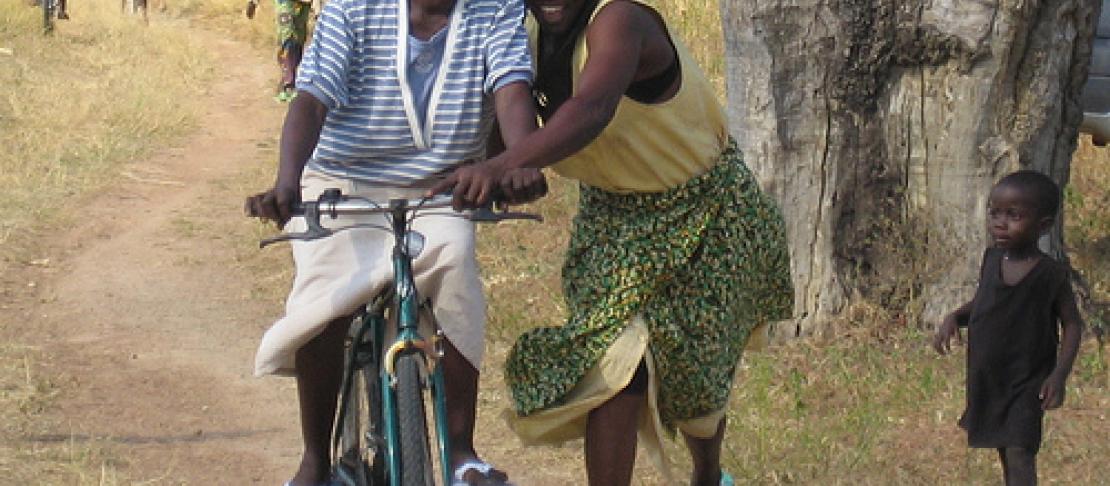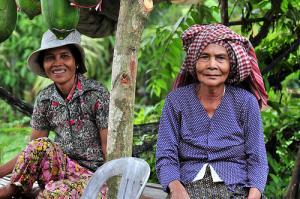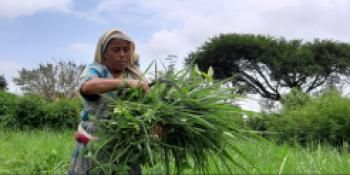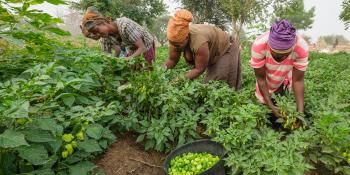How farmers' gender-based differences hamper climate adaptation

by Cecilia Schubert
Women in rural areas in developing countries are not equally vulnerable to climate change. A woman's resilience to the various impacts of climate change depends on her social status, her access to resources, and involvement in social networks. In some cases, one woman can be more resilient than her neighbour, and even be more resilient than some men in her village.
Women are also not necessarily victims of climate change but can contribute to finding solutions on how to cope with climate change. The same applies for men. But in order to adress the gender-based needs and differences that exist, more information from the ground is required.
The newly released Working Paper Participatory gender-sensitive approaches for addressing key climate change-related research issues moves from theory to practice through the testing of pre-prepared participatory research tools in Bangladesh, Ghana and Uganda.
The tools were first developed in the gender-manual ”Gender and Climate Change Research in Agriculture and Food Security for Rural Development” (PDF) released earlier this year, together with the Food and Agriculture Organisation (FAO). The rationale behind the manual and the field tests was to get a better understanding of the reality female and male farmers face, and find gender-differences that impede climate change adaptation in developing countries.
The researchers investigated if and how farming practices are being modified to deal with a changing environment, and the constraints and opportunities these changes pose for both men and women.
The field research covered three main research priorities for the CGIAR Research Program on Climate Change, Agriculture and Climate Change (CCAFS), relating to the climate change, agricultural development and food security ‘nexus’:
- How to enable farmers, both men and women, to visit farms of the future, i.e. visit climate analogues sites;
- How to ensure equity in access and usage of seasonal weather forecasts;
- Get a better understanding of gender-sensitive climate-smart agricultural practices and what catalyze implementation of CSA practices.
Results from the field show that farmers, depending on gender and age, face a different reality and various degrees of vulnerabilty. Men and women also face a different  reality depending on context.
reality depending on context.
For instance in Bangladesh, cultural norms prevent unmarried women to travel, whereas in Ghana women stated that access to transport and finances are not available, preventing them to travel very far.
The authors conclude that these kinds of constraints need to be reflected in planned climate change adaptation projects.
It also became clear that even though women and men in developing countries are involved in farming, their roles are normally based on gender and vary between countries.
For instance, female farmers in Ghana were as involved in agricultural work as their male counterparts and had influence over farming practices, with exception of staple crops. In Uganda and Bangladesh the involvement of women in making decisions concerning the farm was more unequal. Instead they made decisions on agriculture practices in their homestead gardens.
In addition, in Uganda and Bangladesh women lack rights to own land, which leave them out of decision-making. In Ghana, however, despite also having weak rights, women were still involved in changing farming practices, which was an interesting finding.
Another finding was that more research is needed on how to best communicate climate adaptation information and strategies. Seeing as it might be more difficult for women to join trainings and travel, bringing climate information and ideas, in farmers' native languages, through alternative communication channels (such as videos, mobile phones, radio) are important.
However, this depends largely on their access to mobile phones, what language is used, and if such information would be trusted. The researchers propose further investigation of these questions which can help determine the success of climate change adaptation in agriculture.
Read more about the findings and lessons learned from the field work by downloading the Working Paper :
Participatory gender-sensitive approaches for addressing key climate change-related research issues: Evidence from Bangladesh, Ghana and Uganda. By Moushumi Chaudhury (CCAFS), Patti Kristjanson (CCAFS), Florence Kyagazze, Jesse Naab and Sharmind Neelormi. June 2012
This story was written by Cecilia Schubert, Communications Assistant at the CGIAR Research Program on Climate Change, Agriculture and Food Security (CCAFS). Read more blog stories covering the topic of gender, climate change and agriculture. To get more updates on our gender-oriented research, follow us on Facebook and @cgiarclimate on twitter.
Read about our gender grant receipients, conducting research on climate change, agriculture and food security, from a gender-perspective.


